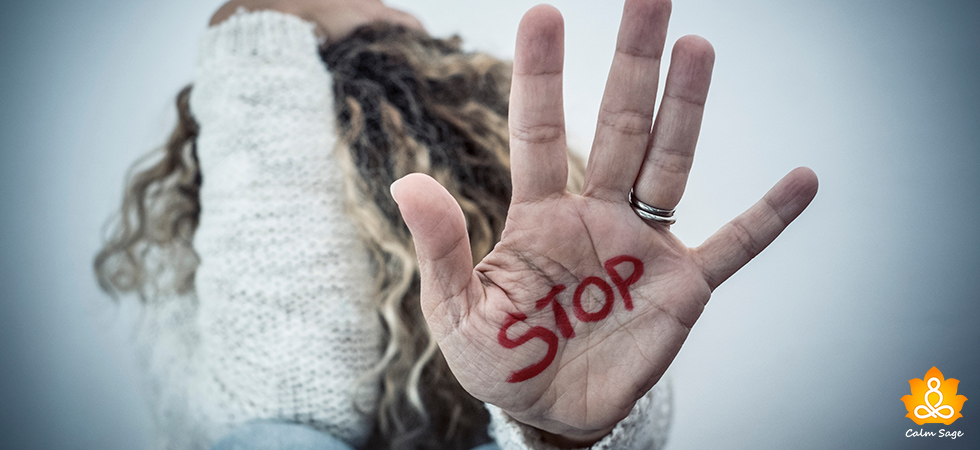What Is Defensive Behavior? Signs, Types & Impact Of Defensiveness

Sometimes we get to hear from our family members or colleagues that ‘Why are you being so defensive? Just accept what it is.’ However, defensiveness or being defensive is not just a word or act, it has another meaning.
Defensiveness could be a feeling as well as the behavior of an individual and is typically generated when someone is being critical about you which could result in disgust, shame, sadness, and anger. As the name also suggests, defensiveness means guarding yourself against an attack or injury. If you are also showing the signs, then you are protecting yourself or someone else against a certain situation.
Why Do We Get Defensive?
Defensive behavior holds the purpose of distraction from the uncomfortable feelings of hurt and shame. Whether you realize it or not, in this situation, one shifts their attention to another person’s faults. This makes the individual feel better about themselves for a time being but in the longer run, it is considered unhealthy.
It is to be noted that defensive behavior is not always due to malicious intent but could be used to make oneself feel better in a situation.
There could be other causes why defensiveness becomes a part of someone’s regular behavior including:
- Childhood trauma or abuse makes a person wanting to be powerful
- Inner anxiety
- Reaction to hide the truth
- Reaction to shame or guilt
- Reaction to helplessness
- Symptom of a mental health disorder
- A behavior learned from others
Are You Being Defensive? Signs of Defensive Behavior
- Stop listening to the other person completely
- Trying justifying your actions
- Accuse someone else of doing the mistake
- Blame another person
- Make excuses about what they are criticizing
- Bring up the past instances rather than talking about the present situation
It is understandable if you are not sure whether you are being defensive or not. Don’t worry, check out some of the common signs of being defensive.
Imagine if someone has criticized you. Do you engage in any of the behavior mentioned below?
If you could notice the signs during an argument, then you or someone else may be acting defensively.
What Are The Types Of Defensive Behavior?
There are different types of defensiveness which you can check if they resonate with you or someone you know.
- Ad Hominem Attack: To discredit the other person, you try to attack them.
- Bringing Past: This type of defensive behavior makes a person remind their past mistakes.
- Holding Silence: Not speaking to someone to make someone realize their criticism
- Gaslighting: This makes the other person feel that they lost their sanity by denying or lying about doing things. The other person feels that they are not thinking rationally in their life.
- Blaming or aggression: Shifting the blame to someone else when being criticized.
- Indignation: Acting like you should not be questioned about the topic for some of the other reasons.
- Victimization: Agreeing when criticized but later blaming oneself so that other people feel guilty about it.
How To Be A Less Defensive Person?
There are several coping strategies that you can use to feel less defensive and more productive in a conversation.
1. Mindfulness:

It means being aware when you are being defensive. Remember, it’s tough to acknowledge and confront the behavior but if you begin to notice your actions, you would be able to explore how to resolve an issue rather than be engulfed in it.
2. Avoid Acting On Your Feelings Immediately:
You may be feeling ashamed or are hurt but this is where compassion comes in. Understand that you don’t need to immediately act upon the feelings and recognize that such instances could happen to anyone from time to time.
3. Find When Do You Become Defensive:
You can use a journal for this particular step. You may become defensive around a certain person or particular type of situation. This will help you to anticipate when is your behavior change most likely to happen and controlling it becomes easier.
4. Work On Your Self Esteem:

Let’s take an example. Someone is making fun of your weight gain without knowing the problems you are going through. You are required to remind yourself that everything you are doing is to keep yourself healthy and you don’t care about what others say.
5. Improve Communication Skills:

It is fine if you communicate with the other person that you don’t want to discuss this particular topic and it makes you uncomfortable. You can even practice a particular situation in advance so that the confidence and communication skills remain well-maintained during the uncomfortable scenario.
6. Don’t Hesitate To Ask For Help:

In case you are not able to control your defensive behavior and it is ruining your relationship with others, consult with a therapist by visiting them in person or messaging us at info@calmsage.com.
When Others Are Showing Defensiveness…
In case someone else is being defensive, you have the power to control the situation before it heats up and causes damage. What you can do when others are being defensive is:
- Frame requests to them instead of criticizing their actions directly.
- Don’t control other people’s behavior but give them time to feel better.
- Do not judge their actions but ask them to discuss things neutrally
- Become a problem solver in a calm and mindful state.
Wrap-Up
We hope that you have found why defensiveness may not be great for you in the longer run. However, it doesn’t mean that you avoid defensive behavior completely but just apply it as and when necessary.
Moreover, asking a professional to help you in difficult situations is worth it. Hence, connect with us at info@calmsage.com and let us help you ahead.




















